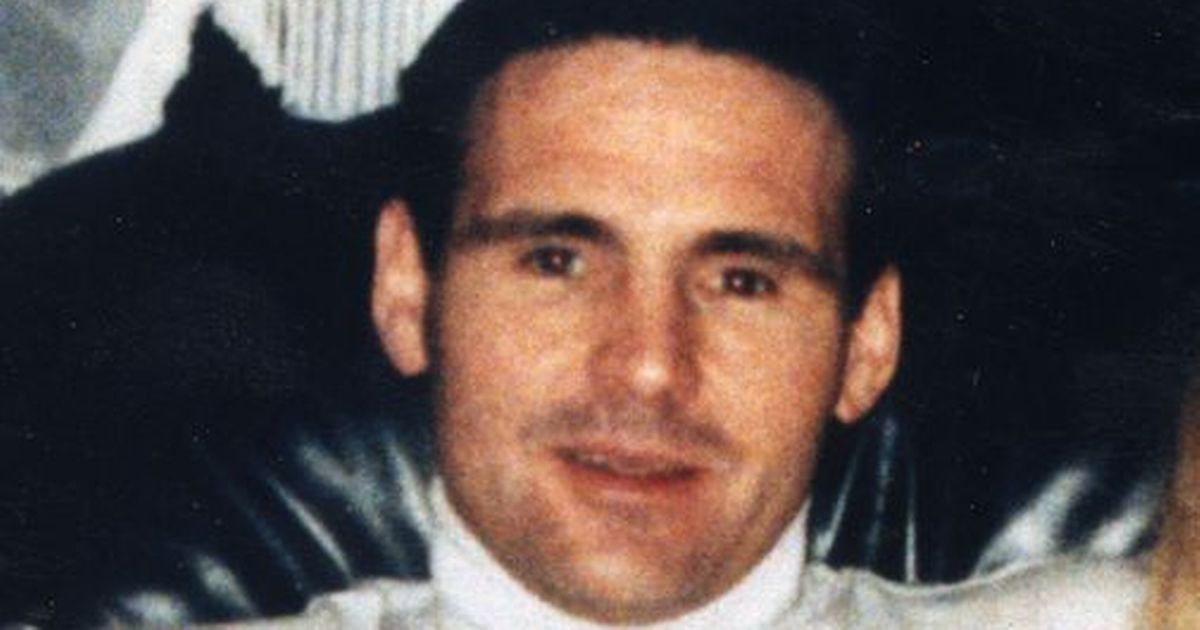The murder of David Ungi was a tinderbox moment with 10 shootings in the next 22 days
08:34, 01 May 2025Updated 08:36, 01 May 2025
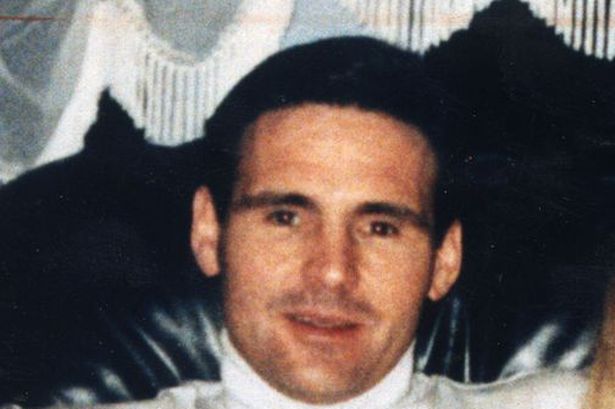 David Ungi Senior was shot dead in the community he grew up in
David Ungi Senior was shot dead in the community he grew up in
The street assassination of a dad 30 years ago today sparked a bloody tit-for-tat street battle that resulted in a drastic police operation, with gun-toting officers deployed in armoured cars to try and keep the peace. The murder of David Ungi, a 36-year-old dad-of-three, who was shot dead on North Hill Street in Toxteth, left an enduring mark on the city.
The fatal street shooting, on the evening of May 1 1995, saw the communities of south Liverpool become a tinder box, with masked men torching cars and brandishing weapons in the street. It was also the catalyst which saw Merseyside Police move towards a new strategy – an all out war on street crime, where armed officers “met force with force”.
Today marks three decades since Mr Ungi, a former boxing champion and unemployed used car dealer, was shot dead in an alleged gangland assassination. But despite the attention the shooting has continued to have over the three decades, no one has ever been charged with or convicted of his murder.
North Hill Street is a long, wide road flanked on either side by play parks, takeaways and semi-detached houses. If you head north east, you reach the tree-lined Princes Avenue close to Toxteth’s Granby four streets, while if you journey south west over Park Road – the boundary with the other L8 community, Dingle – you’ll eventually reach the banks of the Mersey.
When the ECHO visited the street this week, memories of the shooting vary. For some, especially those who have moved into the diverse L8 community in recent years, well clear of the days when the area was unfairly blighted by the social problems that led to the riots in 1981, the murder of Mr Ungi has long fallen out of the daily narrative. But for others, particularly those in Toxteth at the time of the shooting, the impact is long-lasting, to the point where people don’t want to comment on their memories of what happened at all.
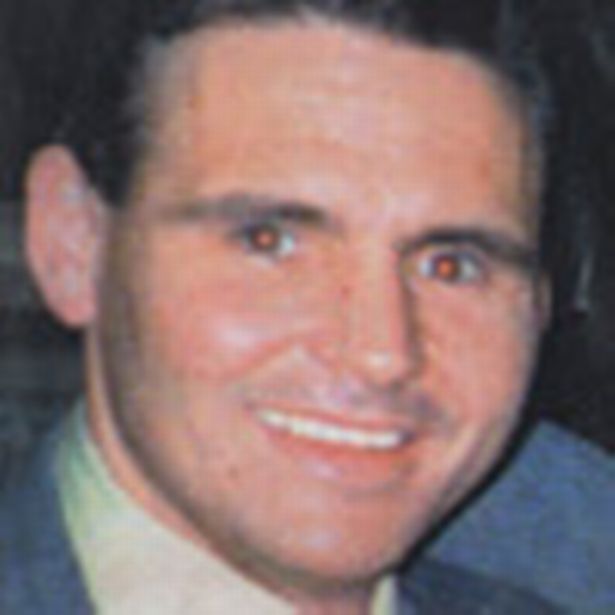 David Ungi
David Ungi
The undisputed facts are these. Mr Ungi, who continued to live in the Toxteth community he was brought up in, was driving along North Hill Street in his VW Passat in the early evening. A black VW Golf GTi pulled in front of his car and a man jumped out, brandishing an automatic weapon before opening fire.
Mr Ungi tried to escape, but was hit twice – with one of the bullets hitting a main artery. He collapsed and died at the scene. While the facts of Mr Ungi’s murder are relatively well known and accepted, the reasons for his brutal street execution are harder to pinpoint.
During the 1990s there was a lucrative trade in drugs in Toxteth, with high unemployment levels resulting in a corresponding crime rate. Crime groups battled for control of the territory and, as the ECHO has previously reported, young foot soldiers were willing to pick up a gun and use it.
In an article published in the ECHO on the tenth anniversary of Mr Ungi’s murder, an anonymous source said: “There is no doubt that this was an organised hit. Someone, somewhere had decided that David Ungi was going to be killed and that was the time they were going to do it.”
But it wasn’t the first time Mr Ungi had been the target of an assassination attempt – and just 24 hours after his murder, police would confirm there had been another recent attempt on his life. Mr Ungi was shot on Morton Street on March 21, with his grieving widow, Jean, revealing her husband lived in fear after the incident.
She said at the time: “He was frightened and was very concerned for the safety of his family. He would wear a bullet-proof jacket all day, even when he went for a run in Princes Park. I do not know why he wasn’t wearing it on the night of his death.”
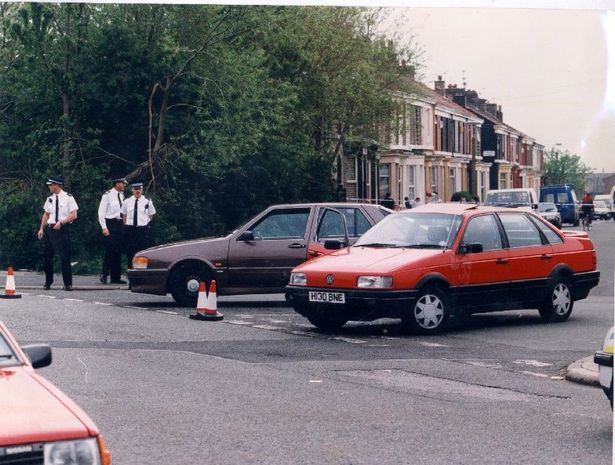 Police at the scene of the shooting of David Ungi
Police at the scene of the shooting of David Ungi
As May turned into June, violence and tensions were rising and the family of Mr Ungi were becoming increasingly upset by the fact they were unable to lay him to rest. Relatives and friends told the ECHO that his body could not be released until the killers had been caught, as any defence team would need the chance to carry out a second post-mortem.
Toxteth had become a tinderbox, and the spark was the arrest of Mr Ungi’s brother Colin for possession of a firearm on May 30. The Ungi home in Malta Walk, Toxteth, was raided early the following day and later the same morning Colin was produced at the old Liverpool Magistrates’ Court building on Dale Street in the city centre.
His solicitor, Julian Linskill, told the court Colin Ungi admitted carrying the weapon when he was arrested while taking his 11-year-old nephew to buy a bike. But he said his client was in fear for his life after the murder of his brother and did not feel police could keep him safe.
That afternoon violence erupted near the Ungi home by the Royal George Pub, known locally as Black George’s, where a gang used petrol bombs to torch three cars. According to an ECHO report at the time: “One man, wearing a red stocking mask, was openly brandishing a pistol”.
The incident led to scenes of chaos as riot police, brandishing batons and shields, held back a crowd of around 600. A firefighter responding to the blaze was injured when the windscreen of his fire engine was shattered, and another man was pulled from his vehicle and beaten by masked men who stole his phone and stoned his car.
Mr Ungi’s family said frustration had boiled over, with one relative speaking to a reporter outside the pub claiming: “It all goes back to this morning in court. That was the problem”. The next morning’s ECHO also carried a plea from Mr Ungi’s mum, Vera Ungi, to “end the madness.”
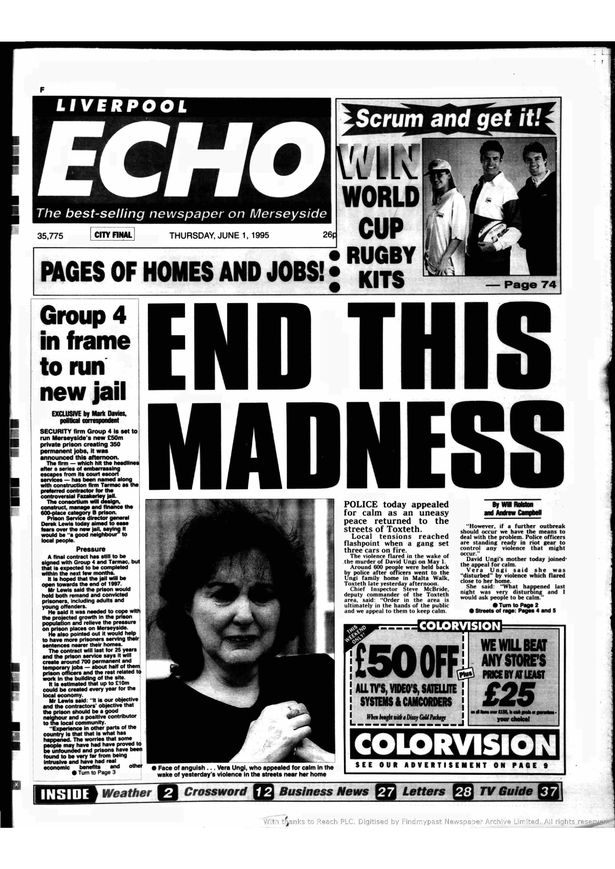 How the ECHO reported the disturbances in Toxteth on May 31 1995, four weeks after the murder of David Ungi(Image: Liverpool ECHO)
How the ECHO reported the disturbances in Toxteth on May 31 1995, four weeks after the murder of David Ungi(Image: Liverpool ECHO)
The force’s chief constable James Sharples sent a warning to gun-toting criminals, while privately, senior police officers feared the daylight assassination could spark off more bloodshed and tit-for-tat incidents from emboldened gangs. Speaking exclusively to the ECHO 10 days after the murder of Mr Ungi, the chief constable said: “I want to give a warning to these people who think they can bring terror and gun law to our streets.
“We have deployed highly trained and skilled firearms officers who have the necessary weaponry to deal with this, and they will use that weaponry if necessary.” Armed police officers were patrolling the streets and detectives had to hold meetings with underworld bosses in a bid to keep the peace.
In his book ‘Drug Wars’, Neil Woods describes how each of the armoured estate cars carried a team of police armed with Heckler & Koch semi-automatic carbines. This was the first time routine armed patrols had been deployed on the streets of mainland Britain in peacetime, instead of armed teams being dispatched for specific operations.
As armed police patrolled the streets of Toxteth, five people were injured in two shooting incidents over the weekend of May 20/21. Those shootings were among ten in 22 days, forcing police to issue public reassurance messages and order all Toxteth, Dingle and city centre officers to wear bullet proof vests while on patrol. But while Merseyside Police’s new tactics – in part inspired by New York’s controversial “zero tolerance” approach to crime – may have disrupted some of the violence erupting in the area, it didn’t lead to Mr Ungi’s killers.
Mr Ungi’s family weren’t able to lay him to rest until November 20, more than six months after his death. When the day finally came, 1,000 mourners gathered at Our Lady of Mount Carmel RC Church in L8. Among the tributes was a 5ft high tableau from Mr Ungi’s three sons, depicting his picture with a dove.
Floral arrangements shaped like boxing rings and gloves followed the procession, with “Dad, Uncle, Brother and Gent” all dedicated to the Toxteth family man. The funeral cortege consisted of 31 stretch limousines and took five minutes to pass by, making its way from the church to Allerton cemetery where all other funerals had to be cancelled for the day.
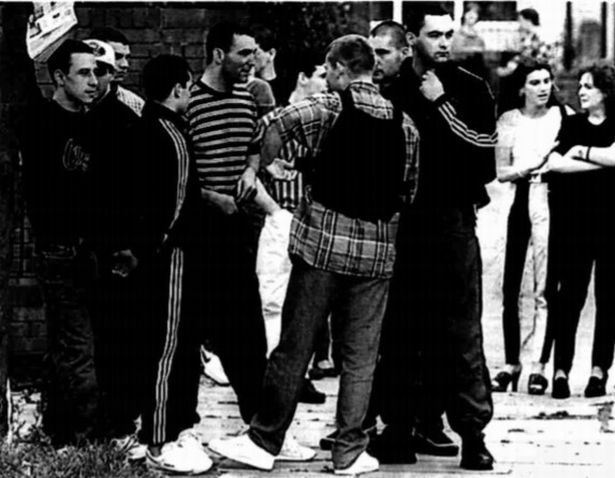 Toxteth residents, including a man wearing a bullet proof vest, on the streets on May 31 1995, after frustration linked to the murder of David Ungi boiled over(Image: Liverpool ECHO)
Toxteth residents, including a man wearing a bullet proof vest, on the streets on May 31 1995, after frustration linked to the murder of David Ungi boiled over(Image: Liverpool ECHO)
Two days after Mr Ungi’s murder, detectives linked an arson attack on the bar Cheers in Aigburth Road to the killing. Reports from the time, and in the years since Mr Ungi’s death, talk extensively about a fist fight the former Golden Gloves boxing champion had with another man, Johnny Phillips, the previous March.
On June 8 1995, a major police security operation was mounted as Mr Phillips appeared in court charged with the attempted murder of David Ungi in Morton Street on March 21. He was not charged in connection with the murder of Mr Ungi six weeks later. The court heard there was a feud between Mr Phillips and “his associates” and the Ungi family over Cheers bar on Aigburth Road.
A prosecutor said Mr Phillips contacted Mr Ungi’s brother, Anthony, and asked for a “straightener” to sort things out. The fight is understood to have taken place on Byles Street, Toxteth – and David Ungi won. But Mr Phillips felt the fight was unfair and alleged Mr Ungi used a knuckleduster.
The case was eventually dropped – and Mr Phillips, shot four times a year later, was later found dead having suffered a heart attack. Speaking to the ECHO at the time, chief superintendent Peter Currie said: “The murder of David Ungi is still very much an open investigation. Merseyside Police has not wavered in its determination to find those responsible and bring them to justice. We are keen to talk to anyone who may have information but has not yet come forward.”
The shooting was not the first street execution in Liverpool, but it has been seen as a turning point in gun crime on the city’s streets. Rumours swirled Mr Ungi may have been killed over a seemingly minor feud, with an anonymous source quoted in 2005 telling the ECHO: “Some people use guns as soon as they have a bit of a falling out…It never used to be like this. You couldn’t say exactly when it all changed but, as far as I’m concerned, things were never going to be the same from the moment David Ungi was shot dead because of an argument over a pub.”
A change in criminality meant a change in policing, and throughout the late 1990s the force invested big on proactive policing. In 1996 the ECHO revealed how the force bought a £1.5m surveillance helicopter, £600,000 on bullet proof vests and piloted the use of CS gas. The development of the firearms team throughout the 1990s was introduced to respond to the rising levels of crimes involving guns, while in 2005, Merseyside Police also created a new unit – Matrix – dedicated to tackling gun crime.
A spokesperson for the serious crime review unit at Merseyside Police said: “The investigation into the murder of David Ungi Snr remains ongoing. The enquiry is subject to a regular review which will take into consideration any new information or developments in forensic science.
“I would like to take this opportunity to appeal once again to the community for their help with the investigation and would urge anyone with information to come forward either directly to the force or anonymously through Crimestoppers in the strictest of confidence. No matter how small the piece of information is, it may prove vital to the investigation.
“A significant amount of time has passed since David was killed and people with information could find themselves in different circumstances and feel in a better position to speak. If that is you, then please do the right thing and tell us what you know.
“You can contact us either via DM @MerPolCC or, if you don’t wish to speak to police directly, contact the Crimestoppers charity anonymously on 0800 555 111 or online via Give information anonymously | Crimestoppers.”
